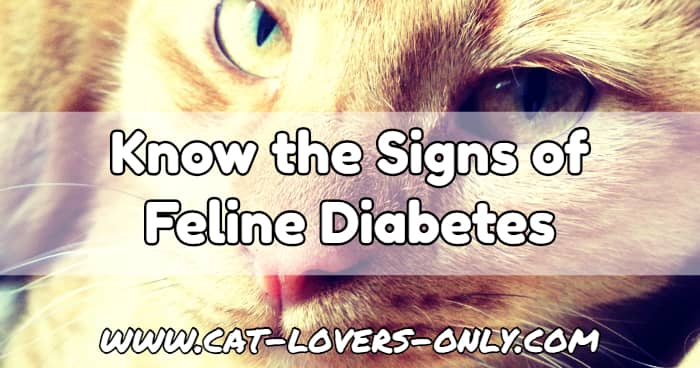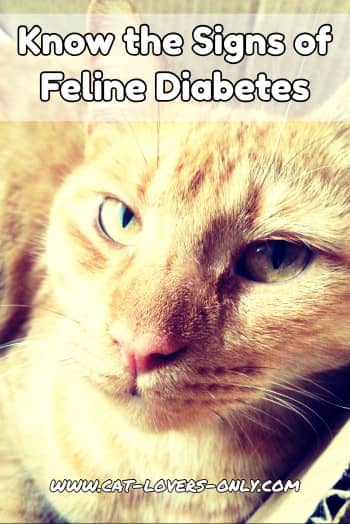Feline Diabetes Symptoms List
Feline diabetes symptoms will vary depending upon the type and stage of the disease.
But they can be easy to miss, especially early on.
Excessive urination (polyuria), and excessive thirst (polydipsia) are the classic signs of diabetes in cats.

In the early stages of the disease, otherwise healthy cats will often show few other symptoms, if any.
The prime candidate for diabetes is an older obese male, but it can affect male or female cats of any age.
Although this is one of the most serious cat health problems, this is often a very manageable disease. Most cats with diabetes can live out full, normal lives, except for the need for treatment.
Some cats that receive treatment may experience only mild forms of these symptoms, and others will stop requiring treatment after a time.
As in humans, weight management is a key factor, as is level of exercise. Both weight reduction and exercise help your cat to regulate blood sugar levels.
You can help to prevent the onset of this disease by doing two things. Ensure that you don't overfeed your cat, and also that your cat is getting regular exercise. If your cat tends to be sedentary, stimulate her to exercise by regularly engaging her and providing plenty of toys.
Feline Diabetes Symptoms
- Polyuria (excessive urination)
- Polydipsia (excessive thirst)
- Increased appetite
- Weight loss
- Lethargy
- Diabetic neuropathy (causes progressive weakness in the rear legs)
Progressive Feline Diabetes Symptoms
As the disease progresses, other signs and symptoms become more common.
- Vomiting
- Lose of appetite
- Dehydration
- Poor haircoat
- Liver disease
- Secondary bacterial infections
Dehydration leads to electrolyte imbalance, which can cause a number of problems. Low water volume in the stool can lead to constipation.
While periodic bouts of constipation are common among domestic cats, it's possible that dehydration (and some accompanying medical cause) may be involved.
If your cat is suffering from constipation, you should make sure there's not something more serious going on.
In addition, a condition known as Ketoacidosis can develop in some diabetic cats. If left untreated, this can be potentially fatal. Ketoacidosis has it's own set of symptoms as follows...
Feline Diabetic Ketoacidosis Symptoms
- Loss of appetite
- Vomiting
- Diarrhea
- Lethargy
- Weakness
- Dehydration
- Breathing abnormalities
Suggested Reading on Feline Diabetes
Where to buy pet medication online and save
Diabetes in Cats
More Info from the Cornell Feline Health Center
Cat Health
Cat Illness Symptoms
Cat Lovers Only



Comments: What do you think?
Have your say about what you just read. Leave me a comment in the box below.